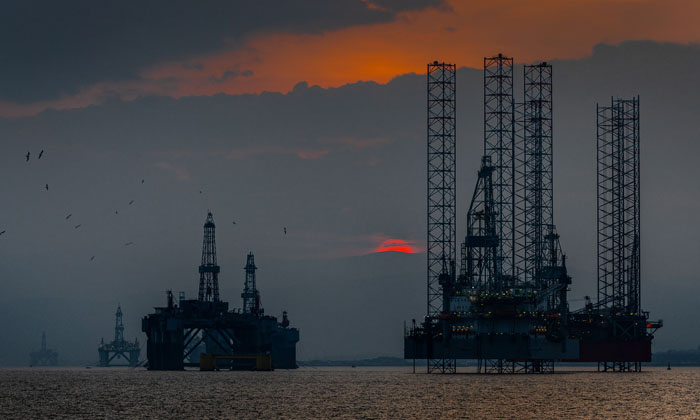the PM urgently needs the chief scientist to brief him on climate change – Inside track
4 min read
In his book Five times faster: rethinking the science, economics and diplomacy of climate change, Simon Sharpe observes that “in climate science, the most surprising thing is how little world leaders have been told about how bad things could get. You might think they are all given clear assessments of the risk that leave them in no doubt about what is at stake. They are not.”
This passage brought to mind Boris Johnson’s story of how he ceased to be a climate sceptic. His “road to Damascus” moment came, he said, when he was given a climate briefing by scientists. It is amazing that he had to wait to become prime minister before this happened. And it is deeply regrettable that Rishi Sunak does not appear to have had that briefing: as far as we know, his pre-teen daughters remain the environmental experts in his family; the government’s official climate advisers, the Climate Change Committee, have been sidelined.
Rishi Sunak’s ignorance and indifference matters because it sets the tone for the whole government. As Zac Goldsmith said when he resigned from the government four months ago, the prime minister’s lack of interest in the environment was evident across Whitehall “and caused a kind of paralysis”. But things have got worse since then: lacklustre support for green policies has turned to outright hostility as the prime minister courts a bunch of know nothing contrarians in the right wing media and seeks to create clear dividing lines with Labour and the other main opposition parties.
The Conservative manifesto promised leadership
I am nostalgic for the time when David Cameron boasted of leading the greenest government ever, or for the 2019 general election, when the Conservatives (who won the election handsomely) promised “the most ambitious environmental programme of any country on earth”. They pledged to “lead the global fight against climate change by delivering on our world-leading target of Net Zero greenhouse gas emissions by 2050, as advised by the independent Committee on Climate Change”.
Rishi Sunak has chosen to renege on that manifesto promise and turn his back on a proud history of Conservative leadership on the environment. He and, at his signal, his ministers have also chosen to do so in a notably dishonest way. In his 20 September speech on net zero, the prime minister invented figures for the cost of net zero and “scrapped” non-existent policies on recycling and meat taxes.
Ministers doubled down on these claims at Conservative conference and indulged in weird conspiracy theories about 15 minute cities (a concept endorsed by sinister radicals such as, er, the Conservative mayor of the West Midlands, Andy Street). HS2, the largest public transport project for generations, was scrapped. It seems that some of the money saved will pay for roads in the south east.
The King may choke on his words
Tomorrow’s King’s Speech will tell us whether we have a year more of this stuff to endure. If we do, the King might just choke on the words he has to read. But he will also know that, at this stage in the parliamentary cycle, little of what is announced will be enacted. The King’s Speech will be about general election battle lines, not legislation.
We can expect a sturdy defence of drivers, though I am not sure anyone will have the poor taste at this particular time to talk about a “war” on motorists. We should remember that fuel duty has been cut or frozen since 2010 and that drivers are also cyclists, pedestrians and users of public transport. They want cleaner air and less congestion. Many wonder why they are paying so much for their petrol and how quickly they can switch to a cheaper, cleaner electric vehicle.
The King’s Speech is also expected to include some knockabout stuff on new licences for North Sea oil and gas. The aim is to put Labour on the spot: jobs and homegrown energy vs net zero purity. But the North Sea is a declining asset, as is government credibility on energy policy. The real issues are elsewhere.
For the economy, the important question is how to transition from oil and gas to renewable energy in the fairest, most sustainable way, and how to revive our offshore wind industry. The government’s “last drop” strategy for North Sea oil and gas is a distraction.
For most voters, whose energy bills have doubled in the last two years, the pressing concern is how to get by. Up to seven million households are in fuel poverty and will struggle to pay their bills this winter. There is serious human pain buried in that statistic and no amount of posturing on North Sea licences will take a penny off energy bills. In this context, it was bizarre for the prime minister to scrap the energy efficiency taskforce and plans to require private landlords to upgrade their properties.
Climate leadership is an asset for UK diplomacy
As for the climate… Well, people really do care about it, not least Conservative voters. This is unlikely to change as we see more and more extreme weather. A leader wanting to take ‘long term decisions for a brighter future’ ought to see this. He should also recognise that one of the UK’s main diplomatic assets is our climate leadership. There is no point in pointing back to past achievements. Leadership is about the future, not the past.
NGOs always want more from governments. The Conservatives, since 2010, have often fallen short on the environment, but at least they have generally intended to do the right thing. They have looked like a modern party which, however fitfully, understands the great challenge we face. Unfortunately, Rishi Sunak, like his immediate predecessor, shows no sign that he understands. Will someone please give him that briefing on climate science?





